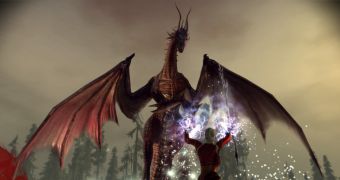You know what rules in the Dragon Age game world? A party made up of three mages and just one warrior specializing as a tank. There are mages, Morrigan and Wynne, that you can recruit in the game and can concentrate on damage dealing and on healing and buffs. The player can also create a mage character and specialize on crowd control and maybe a bit of damage dealing. Alistair also makes a perfect companion for his ability to attract the attention of enemies. This party will make anything in the game above level 6 or 7 seem a trivial challenge, if played right.
The awesome power which mages have underlies the fact that, unlike other Western role playing titles, in the lands depicted in Dragon Age: Origins magic is not something too common. It might have something to do with the fact that mages of an ancient empire actually used their power to invade the personal space of gods, which turned out to actually cause the appearance of the Darkspawn and cause the four Blights (the fifth you try to survive in the game) which have caused destruction in the world.
The relatively low magic world, where those who can cast are both highly valued for their potency and also closely watched to make sure they don't turn really, really powerful and evil, is a very nice refreshment. In both Baldur's Gate 2, especially with Throne of Bhaal and in Neverwinter Nights and its expansions, magic was so common, with most objects actually enchanted and with mages a dime a dozen, that it actually lessened its impact and made the whole setting less believable. In Dragon Age, magic is powerful, enemy casters need to be quickly taken out of the fight, making both the Dog (or the mage seeking cruise missile) and Alistair an important addition to the party, and the whole world can be shaped by the actions of one mage, especially one with sinister motives and with access to the forbidden knowledge of blood magic.

 14 DAY TRIAL //
14 DAY TRIAL //